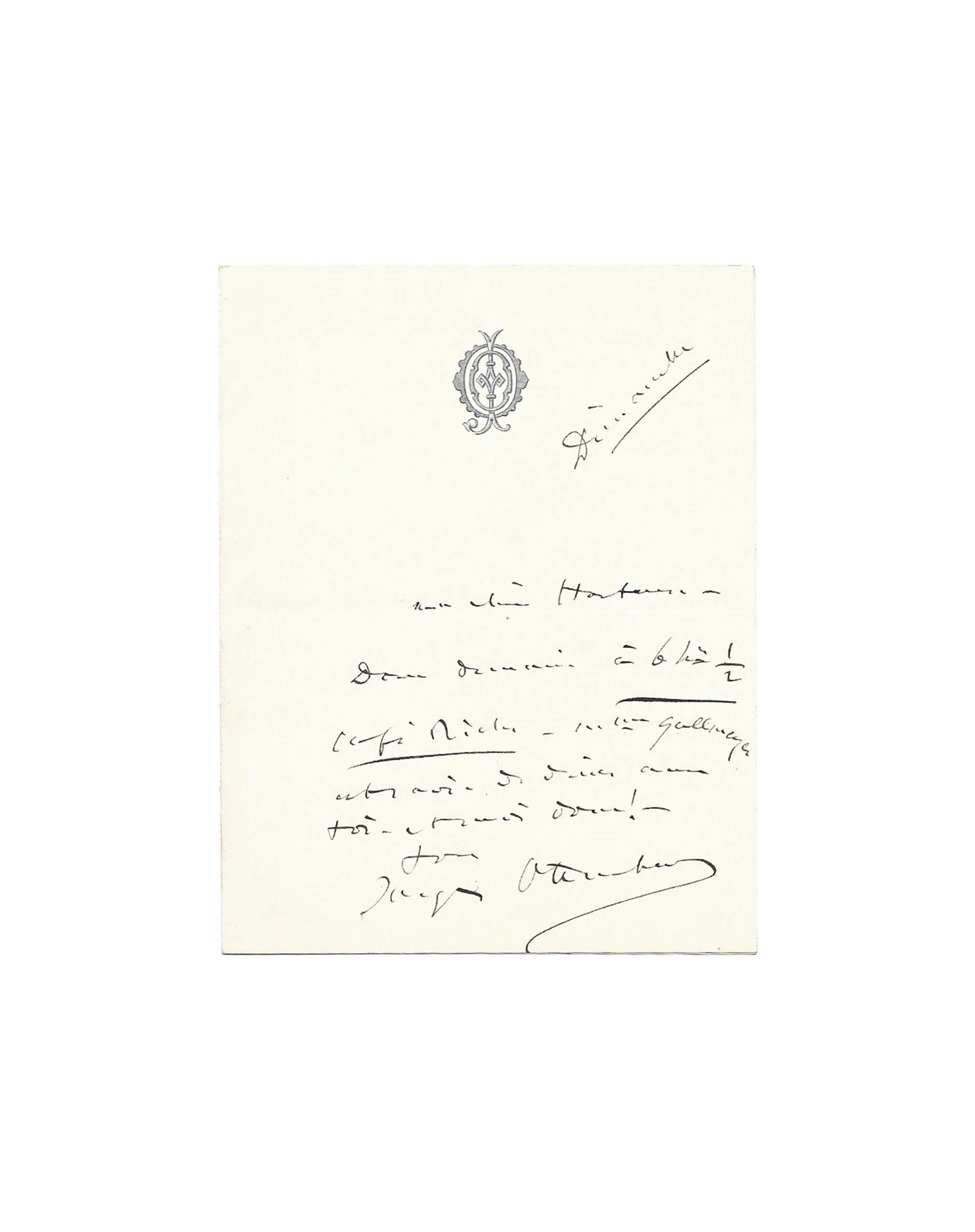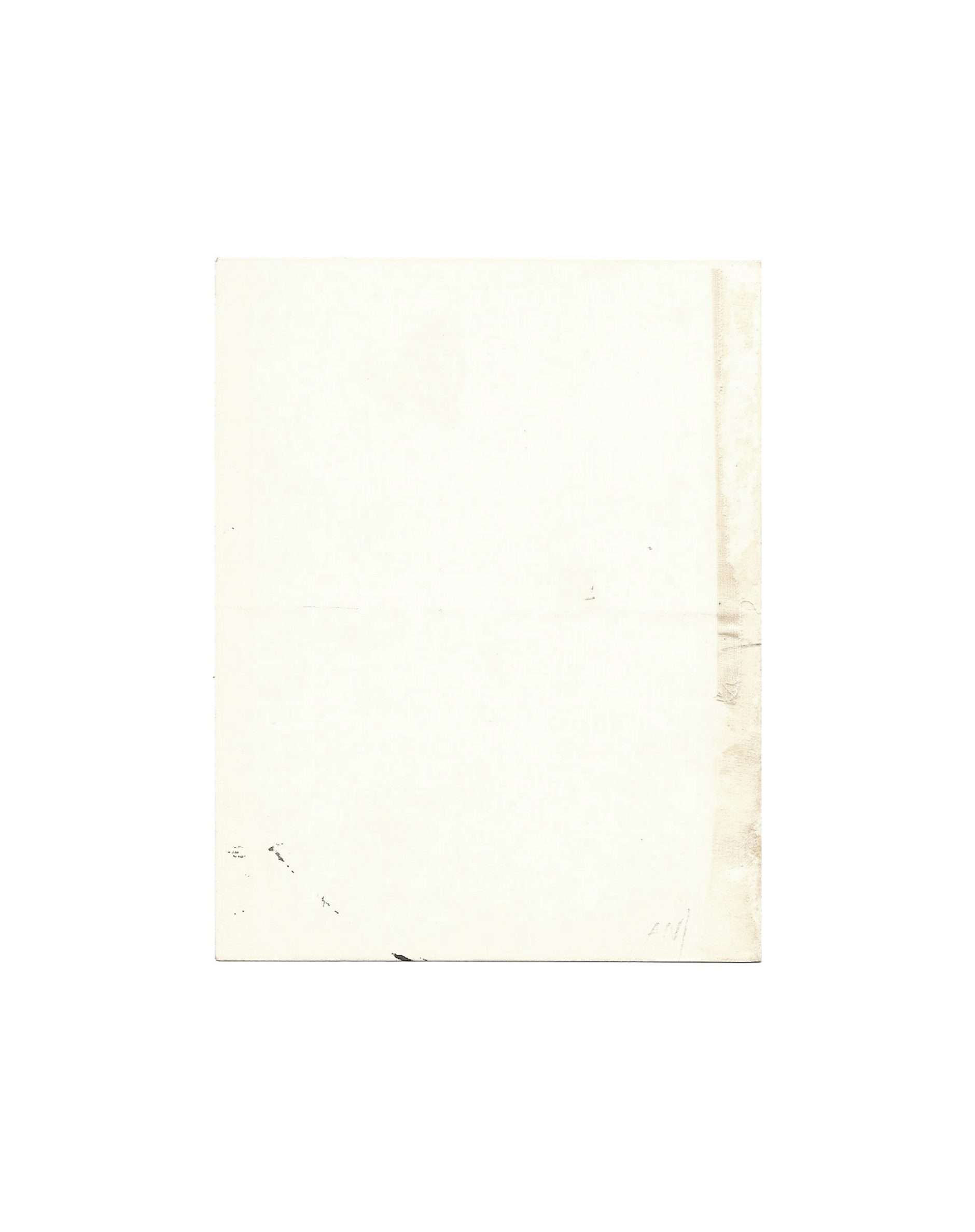OFFENBACH, Jacques (1819-1880)
Autograph letter signed « Jacques Offenbach » to Hortense Schneider
S.l.n.d, « Sunday », 1 p. in-16°
« So tomorrow at 6 h 1/2 Café Riche »
Fact sheet
OFFENBACH, Jacques (1819-1880)
Autograph letter signed « Jacques Offenbach » to Hortense Schneider
S.l.n.d, « Sunday » [after 1855], 1 p. in-16° in black in on bifolio
On his letterhead, old trace of mounting on fourth page
Charming note from the composer to his favourite soprano in one of the most sought-after restaurants of Paris
« Ma chère Hortense,
Donc demain à 6 h 1/2 Café Riche – Mme [Josefine] Gallmeyer est ravie de diner avec toi – et moi donc !
Jacques Offenbach »
A German composer who became a naturalized French citizen, Jacques Offenbach began his career as a virtuoso instrumentalist. In 1855, he opened his own theater, Les Bouffes-Parisiens, and began to compose operettas: Orphée aux enfers, La Belle Hélène etc. His genius was to turn this genre into a musical and social satire, parodying the noble genre of opera and the bourgeoisie of the Second Empire.
Hortense Schneider (1833-1920) met Offenbach in 1855 and became his favourite soprano. He gave her the title role in La Belle Hélène and established her as the darling of the whole of Paris. The operetta La Grande-duchesse de Gerolstein made him one of the greatest stars of his time.
Josephine Gallmeyer (1838-1884) was an Austrian soprano who was divided between operetta and popular songs. It was a great success with the Viennese public.
The Café Riche is one of the Grand Boulevard cafés that was fashionable during the second half of the nineteenth century. All the artists went there: Baudelaire, Goncourt, Zola, Flaubert, Mallarmé, Renoir, etc. The place is described in detail by Zola in La Curée, the second volume of the Rougon-Macquart.



